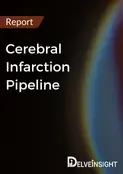Stroke medicine encompasses a complex medical discipline requiring thorough understanding of integrated biological mechanisms and systematic clinical approaches. This comprehensive healthcare framework spans the complete spectrum from acute vascular events through extended adaptation processes, providing medical professionals with essential guidance for coordinated patient management. Each framework component contributes significantly to treatment success and long-term functional outcomes.
Vascular Occlusion and Perfusion Crisis
Stroke pathogenesis initiates with sudden arterial blockage that severely disrupts cerebral circulation to dependent brain territories. Clot material obstructs blood vessels, creating immediate perfusion deficits that endanger neuronal survival and function. The extent of threatened tissue correlates with blockage location, collateral blood supply availability, and duration of reduced circulation. This primary circulatory event establishes the foundation for all subsequent pathological developments.
Cellular Stress Response and Metabolic Crisis
Cerebral hypoperfusion triggers immediate cellular dysfunction as neurons face severe oxygen and nutrient limitations. Mitochondrial energy production becomes severely impaired, leading to inadequate ATP synthesis and cellular energy deficits. This metabolic crisis forces dependence on inefficient energy pathways that produce toxic substances and create harmful cellular conditions. The bioenergetic failure underlies subsequent tissue damage and dysfunction patterns.
Membrane Failure and Neurotoxic Damage
Cellular energy loss compromises essential membrane functions, particularly transport systems that regulate ionic balance and electrical activity. Ion pump failure and calcium channel dysfunction create catastrophic cellular imbalances that disrupt normal neuronal function. These disruptions trigger massive neurotransmitter release that creates toxic conditions for neighboring brain cells. This secondary damage mechanism extends injury beyond the primary affected area.
Inflammatory Response and Tissue Reaction
Brain injury activates complex inflammatory processes involving resident immune cells and circulating inflammatory mediators. This response serves protective functions through damage cleanup and repair initiation while simultaneously contributing to tissue injury through inflammatory substance release. Immune cell activation, oxidative stress production, and enzymatic tissue breakdown contribute to secondary brain damage. The inflammatory response significantly affects ultimate injury extent and recovery potential.
Barrier Dysfunction and Fluid Accumulation
Stroke progression consistently involves blood-brain barrier compromise, permitting abnormal substance movement into brain tissue spaces. This barrier breakdown generates tissue swelling, increases brain pressure, and may further compromise circulation through tissue compression effects. The relationship between barrier failure and inflammatory responses creates additional management challenges requiring careful clinical attention and intervention strategies.
Symptom Development and Clinical Evaluation
Pathophysiological processes eventually produce recognizable medical syndromes that reflect the anatomical pattern of brain injury. Patients manifest characteristic stroke symptoms including paralysis, language disorders, visual problems, and coordination difficulties. Comprehensive medical evaluation guides diagnostic testing and treatment planning within the systematic Cerebral Infarction Pipeline approach for optimal patient care.
Acute Intervention and Emergency Care
Modern stroke management emphasizes urgent therapeutic intervention to minimize brain damage and preserve neurological function. Cerebral Infarction Treatment approaches include medication-based clot dissolution, surgical clot removal, and comprehensive medical support measures. Treatment selection requires careful evaluation of patient characteristics, symptom timing, and available medical capabilities. Time-sensitive decision-making remains critical for achieving optimal results.
Rehabilitation Medicine and Adaptive Recovery
Following acute stabilization, medical care transitions toward promoting neurological recovery through specialized rehabilitation interventions. The brain's plasticity mechanisms enable structural and functional adaptation that supports compensation for damaged regions. Interdisciplinary healthcare teams implement proven strategies addressing movement, communication, and cognitive deficits while supporting psychological adjustment processes. This recovery phase emphasizes maximizing patient independence and life quality.
Prevention Strategies and Risk Management
Long-term stroke care focuses on comprehensive prevention through systematic risk factor modification and ongoing medical monitoring. Patients work with healthcare providers to address controllable risk factors including blood pressure, diabetes, cholesterol levels, and lifestyle behaviors. Medication therapies, surgical procedures, and lifestyle interventions may be recommended based on individual stroke causes. This preventive approach significantly reduces future stroke occurrence risk.
Research Innovation and Treatment Development
Continued advancement in stroke medicine depends upon ongoing investigation by specialized research organizations focused on neurological disorders. Cerebral Infarction Companies develop innovative therapeutic strategies spanning emergency intervention, brain protection, and recovery enhancement technologies. These organizations connect laboratory research with practical clinical applications for improved patient care.
Clinical Investigation and Evidence Generation
Rigorous medical research establishes the evidence foundation for optimal stroke management through systematic scientific approaches. Cerebral Infarction Clinical Trials evaluate treatment effectiveness, safety considerations, and implementation strategies across diverse patient groups. These investigations continuously improve treatment protocols and advance medical knowledge for better patient outcomes.
Comprehensive Integration
Both analytical frameworks demonstrate that stroke medicine requires multifaceted understanding encompassing disease mechanisms, clinical management, and recovery processes for optimal patient care delivery.
Latest Reports Offered by Delveinsight:
Acute Pyelonephritis Market | Asperger Syndrome Market | Attention Deficit Hyperactivity Disorder Adhd Market | Cardiopulmonary Management Device Market | Childhood Atropine For Myopia Progression Market | Cholangiocarcinoma Market | Dyspepsia Market | Emphysema Market | Genital Herpes Market | Growth Hormone Deficiency Market | Guillain-barré Syndrome Market | Hairy Cell Leukemia Market | Intestinal Obstruction Market | Malignant Fibrous Histiocytoma Market | Menopause Market | Metabolic Acidosis Market | Multiple Myeloma Market | Neurostimulation Devices Market
About DelveInsight
DelveInsight is a trusted provider of life sciences and pharmaceutical market research and consulting, offering actionable insights that empower organizations to make informed decisions. With a commitment to delivering strategic intelligence, DelveInsight serves as a key partner to global pharmaceutical, biotechnology, and healthcare companies looking to excel in an evolving market landscape.
Contact Us
Kanishk
Email: kkumar@delveinsight.com

